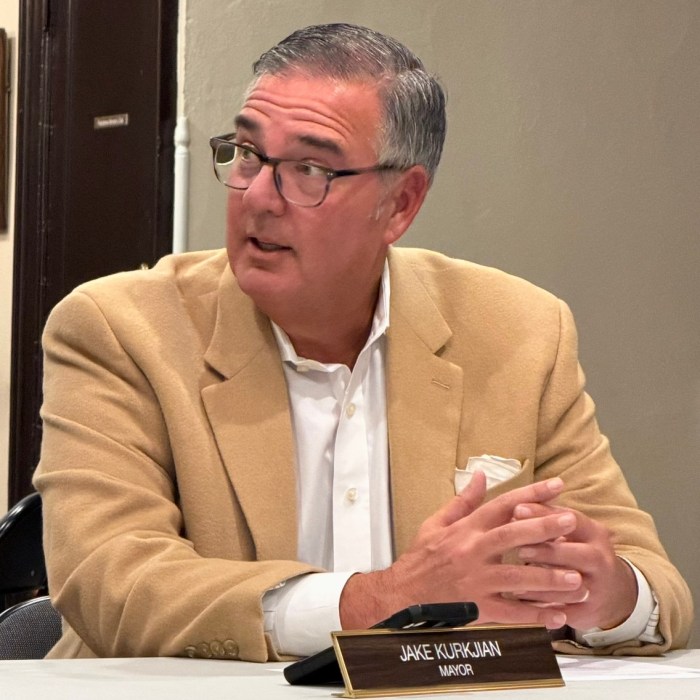A Farmingdale man was awarded a $40 million verdict earlier this month by a Nassau County Supreme Court jury who charged two Long Island hospitals with medical malpractice for failing to respond properly to a stroke he had in 2018.
Charlemagne Hobour, 52, is paralyzed on his left side and wheelchair bound for life after Catholic Health’s St. Joseph Hospital and Good Samaritan Hospitals failed to administer necessary medication or perform a blood-clot removal surgery when he experienced an April 4 stroke in 2018, according to the jury’s decision.
Stuart Finz, Hobour’s attorney, argued that the malpractice occurred because Catholic Health is not following stroke treatment standards set by the American Heart Association and he hopes the decision prevents a similar situation from happening again.
“This verdict sends a loud and clear and strong message that hospitals in Nassau County must adhere to the national guidelines with regard to stroke victims, and must treat stroke victims in accordance with those guidelines,” Finz said. “We hope and we believe that this verdict will require a revisiting of the existing policies and procedures.”
Catholic Health said it was “disappointed” in the case’s outcome in a statement.
“We are disappointed in the outcome of this case,” Catholic Health wrote in an email. “Patient safety and quality remain our top priorities at Catholic Health.”
Finz said there were two “missed opportunities” where if Catholic Health had provided Hobour care in accordance with American Heart Association standards, Hobour would have likely experienced a different outcome.
Finz said paramedics who arrived at Hobour’s home within minutes of the onset of his symptoms diagnosed him with a stroke and immediately took him to Catholic Health’s St. Joseph Hospital, where he was denied tPA, a drug that breaks up stroke-causing blood clots and must be administered within 4 1/2 hours of symptom onset.
Despite arriving at the hospital within 40 minutes of his symptoms starting, doctors denied Hobour the drug because his wife, who was not with Hobour at the time his stroke began, reported that the last time she saw Hobour in a normal condition was hours before, when she left the house earlier in the day. However, American Heart Association Standards say to follow the patient’s reported onset time, particularly if no one is around the patient when a stroke begins.
Even though Hobour and the paramedics who first responded to him reported his symptom onset time as 40 minutes prior to arriving at St. Joseph Hospital, doctors still refused to administer the drug, Finz said.
Hobour was then taken to Catholic Health’s Good Samaritan Hospital, where doctors refused to perform a mechanical thrombectomy surgery to remove the stroke-causing blood clot, because over 30% of his brain tissue was dead. However, American Heart Association Standards say that the surgery should be performed up until 55% of a patient’s brain tissue is considered dead, a standard that Hobour had met when he was denied the surgery.
“That was part of their policy that was contrary to the guidelines,” Finz said. “As a result of that, a mechanical thrombectomy was not performed and Mr. Hobour tragically sat in that hospital as his brain cells were dying and as the stroke was continuing to progress until completion.”
Catholic Health didn’t respond directly to questions on why it follows standards inconsistent with the American Heart Association’s and whether it had any plans to change them following the verdict.
“We believe the physicians at both Good Samaritan University Hospital and St. Joseph Hospital provided care consistent with established best practices for stroke treatment and met the clinical standards expected in such a complex situation,” the health system wrote in a statement. “Good Samaritan University Hospital is the first facility on Long Island to be designated a Comprehensive Stroke Center by both The Joint Commission and the New York State Department of Health.”
Finz said he feels strongly that the health system needs to alter its policies and hopes it will, despite not making a stated commitment to do so.
“Even though the jury has spoken in a very loud and clear voice…those two hospitals are still denying responsibility and liability,” Finz said. “They should review their policies, they should modify them, and they should do what is best for the population that walks into that hospital, and not what is in their own financial interest.”





























